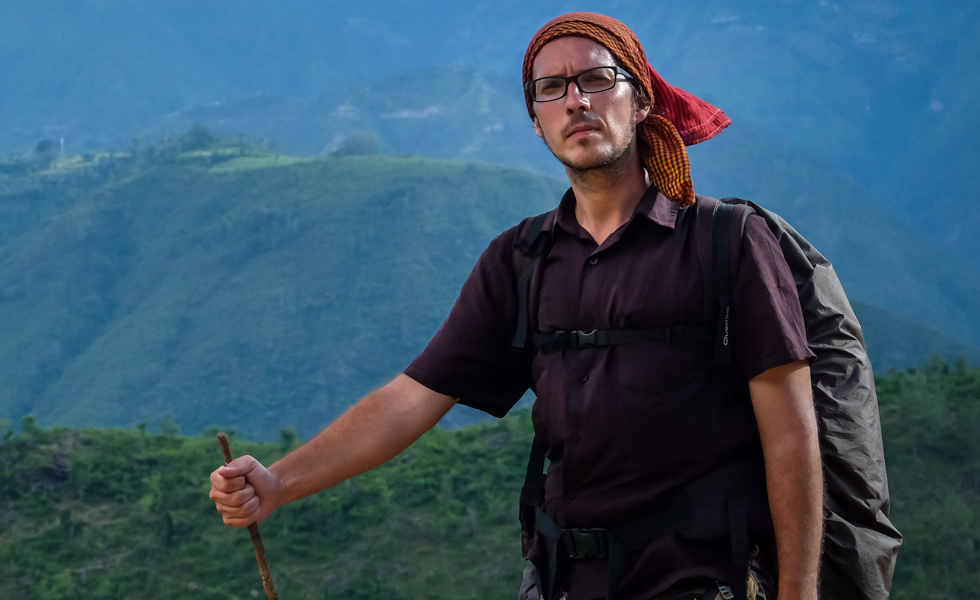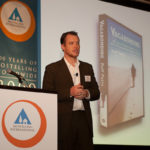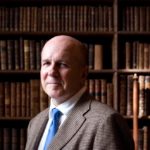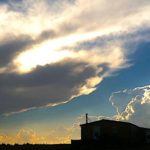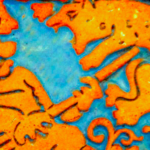Marco Ferrarese writes about travel, culture, and extreme music in Asia for a variety of international publications, including Travel + Leisure Southeast Asia, CNN Travel, BBC Travel, The Guardian, National Geographic Traveler (UK), the South China Morning Post, Roads and Kingdoms, and Time Out.
Marco’s first pulp novel Nazi Goreng, published in 2013 by Monsoon Books, explores the underbelly of Malaysian international drug trade and displaced youth. A bestseller in Malaysia, it was translated into Bahasa Malaysia and ultimately banned by Malaysia’s Ministry of Home Affairs in 2015. His second book, Banana Punk Rawk Trails, documents Marco’s forays into the world of Malaysian and Indonesian metal punk, and was defined by The Star newspaper as ‘highly entertaining, intellectually absorbing, and culturally important’. His third book, The Travels of Marco Yolo, published in 2017 by Gerak Budaya, collects 28 hair-raising trails through the darkest, less-trodden fringes of Asia.
In the fall of 2016, he joined British travel guide publisher Rough Guides updating the Malaysian and Brunei chapters of their Southeast Asia on a Budget. He’s now working on the new edition of Malaysia, Singapore & Brunei. Based in Penang for almost a decade, blogs about it on the Penang Insider.
How did you get started traveling?
My family took me to a lot of Italian seaside towns as I grew up, but my very first taste of foreign travel was thanks to my childhood best friend’s parents. They were left-wing post-hippies: in the mid 1970s, his father traveled in a battered car along the Hippie Trail from Pavia to India. He used to tell us stories of seeing the Taj Mahal in Agra, and crossing from Afghanistan into Pakistan through the fabled Khyber Pass. At the time, my friend and I didn’t care much about that part of the world. We only wanted to play music and make it to Europe and America. I would have never imagined that Asia would become my home.
I went abroad for the first time with that very same friend and his mother — to Geneva, Switzerland, to participate to a pro-peace sit in. I was 11 or 12.
But it was punk music that took me all over Italy and Europe first, and the United States later. That same best friend and I started playing in a band when we were 13. We recorded our first 7-inch single at 14 years old, and started playing shows around northern Italy. Our parents used to drive us to the clubs until we turned 18 and got the driving licenses that made everything easier. The music scene was some sort of a sub-world where everyone was happy to take care of each other. By the time I was 20 and jumped on a plane to Texas, my first time in America, I was already well-versed in the art of crashing on the floors of other music fans I only knew through snail mail correspondence. Punk rock was the safety net that kept all of us, all over the world, together. Traveling on tour or to see bands was my first foray into independent travel.
When all of my music life came somewhat to an end in 2007, I jumped at the chance to teach Italian in China without knowing a word of the language, and not much more of Asia – except for the wacky Japanese comic books and animation I loved collecting. During my teaching stint, I had two months off for Chinese New Year. Instead of going back home to see mum and dad, I took a road trip from north China to Thailand when the former was preparing for its first Olympics. That experience changed my outlook on life and re-ignited a desire for writing. I went back home for the first time – by land from Singapore to Milan through Central Asia and the Middle East, hitching rides with truck drivers — only 5 years after I left. In that time, I had met my Malaysian wife Kit Yeng, put down second roots in Penang, and traveled with her to most of South and Southeast Asia.
How did you get started writing?
I was lucky enough to have a mother who wanted me to read since very young. She would push all the books we had at home into my hungry hands, one after the other. This led me to seek a break from my provincial hometown boredom in local book stores. Besides the great American and European classics, to my parents’ dismay I loved horror fiction, and grew up on a steady diet of King, Lovecraft, Poe, Barker, Hawthorne, Matheson, and many others. But what really blew my mind was splatterpunk: that landmark collection by Skipp & Spector, and works by Joe R. Lansdale, Rex Miller and Poppy Z. Brite, among others, inspired me to become a young writer. At 18, during my last year in high school, I self-published a collection of short stories titled Cannibal that became quite successful in the Italian underground writing community, getting me a bit of attention and a few gigs writing for local horror anthologies. It also landed on the principal’s desk right before my high school finals. She almost kicked me out of school as she didn’t really like a potential psychopath to share the grounds with other well-behaved kids.
Then came punk rock and I forgot all about the writing of prose and started writing music and lyrics. I wrote my own fanzine, Formaldehyde, focused on raw garage punk and sick movies. But writing became a side passion. It was only ten years later, after my band The Nerds had called it quits, that I moved to China to teach languages, and thought it was about time to start penning my experiences. I started a blog in 2007, monkeyrockworld, that if I had curated in a more focused way may have sent me into the upper echelons of the travel blogosphere.
One thing led to another, and by the end of 2012, after that Singapore to Milan overland jaunt, I decided that writing had to become my career. Untrained in journalism, even without a firm grasp of the written English language, I started wandering the world of freelance writing and published my first novel, Nazi Goreng, by pure luck. Five years later, I think that setting my mind to becoming a travel writer was the best decision I ever made.
What do you consider your first “break” as a writer?
Probably entering the Vagablogging team. I think that it helped me realize that, despite being a non-native speaker, a metal punk rocker who learned his English reading the cuss words and blatant statements on underground bands’ lyric sheets, I had made my first step into an international writing arena.
The problem with many young writers is not being able to understand when they really make this transition. As a consequence, they miss the chance to transform their mindsets from “oh gosh this is just a fun past time” to “oh gosh if I don’t take this seriously enough, who will pay the bills next month?” In my experience, gathering the confidence to write in a second language for an established international platform gave me a morale boost and more nerve to start pitching others and think of myself as a real “travel writer.” You know, in the average Italian mindset, that’s not a real job.
As a traveler and fact/story gatherer, what is your biggest challenge on the road?
Making it all work together at times is daunting. To find the unknown angles I always try to write about, I travel cheap, hard and dirty. That’s just an extension of my underground punk rock days, and I can’t have it any other way. It’s just hard to be able to take proper notes and keep to a daily word count when you have to get up at 4 a.m. to catch the only bus going across that patch of the Himalayas. When I hitch-hike – and I do that a lot, to get where others don’t and find unusual stories – travel gets so unpredictable that it’s impossible to keep up with a schedule. Sometimes the travel is so grueling I completely forget to take notes — I’m lucky to have a good visual memory. Truth be told, it’s not always like that, and it’s getting a bit easier now that I have a byline in some well respected international publications, but travel logistics can eat up a lot of research time.
What is your biggest challenge in the research and writing process?
Making it all look good, in shiny and coherent prose that attracts and inspires readers. Every project is different: if I am writing a front-of-the-book 500 word piece, for example, it’s hard to fit all that careful research, a sense of place, and the reason why people should go there now in such a short space. Gauging the words and making them sound perfect is at times the most time-consuming part of my job. On top of that, the fact I’m writing in a second language makes it all even more strange: no matter how hard I try, I never get a real sense of how my prose reads, because it comes off filtered by self-translation and language transfer. I believe this is also a perk, as I end up using words and metaphors that generate from the clash of two very different languages.
Truth be told, I can’t say whether I think and write in Italian, English, Spanish or Malay. But a finished piece of my own writing never really feels my own, even when it’s published. It’s an exciting process, a constant surprise that keeps my words going.
What is your biggest challenge from a business standpoint?
As mentioned before, is treating writing as a real business. Which means, understanding that what you love to do must be taken to a certain level of professionalism. Hence, at times, I struggle in striking the right balance between what really is a good investment in myself and my own business, and what is not. In the past, I have treated writing with a DIY punk rock ethic, doing basically all by myself, all the time. But this can bring quickly to creative exhaustion and burn-out.
It’s also hard to self-motivate into a regular pitching schedule that actually lands new clients and bylines, but that’s the only way to move on freelancing. For this reason, I am now trying to diversify my sources of income, experimenting new things, going back to blogging with more focus, and definitely narrowing it all down to be considered as an expert on South and Southeast Asia.
At last, I feel somehow limited by my nationality, as I can’t clearly submit my writing to many important awards like the Lowell Thomas Travel Journalism competition, that are only open to American or British writers.
Have you ever done other work to make ends meet?
If you call it work, I received a Ph.D. scholarship from Monash University to study anthropology in Kuala Lumpur at the end of 2012 – more or less at the same time I decided to become a travel writer. I accepted for two reasons: first, it would have given me a chance to not just live in a country I love, with the woman I later married, and a monthly salary, for the next 4 years. Second and most important, to hone my writing skills well beyond the comfort zone of blogging and writing travel articles. Making ends meet was not the hard part; the hardest was making enough time in a day to read and research my thesis, and find and pitch good angles to new publications. It was really hard hustling, because academic and creative writing really are two completely different worlds. It was like putting my mind to two completely opposite tasks, day in and day out. Add to that finding time to travel, and you get the idea of how intensively hectic my past 4 years have been.
But they were great, too: I researched the impact of globalized heavy metal and punk subcultures on the identity formation of multi-ethnic members of the Malaysian underground scene. I spent a year trawling every damn hellhole of Malaysia, from Penang to Lahad Datu, scouring for sonic transgression. The best part is, I was on a university payroll to do so. On the side, I kept collecting notes that led to magazine stories, and eventually the bulk of scrapped Ph.D. ideas that became my book Banana Punk Rawk Trails: An Euro-Fool’s Metal-Punk Journeys in Malaysia, Borneo and Indonesia.
I submitted my Ph.D. in April 2016 after taking a 4 months “write away break” I used to travel from Hong Kong to Italy by train, via the Trans-Siberian Railway into Finland, and down through eastern Europe. Since earning my Ph.D., I have not worked on anything that’s not related to my own writing and researching. I also owe that privilege to the fact I decided to live in a country and city where life’s more than half the price than in the rest of the Western world where many travel writers want to be.
What travel authors or books might you recommend and/or have influenced you?
Pico Iyer‘s Video Night in Kathmandu is great as it mixes a journalistic eye, interesting self-reflexivity and a humorous gaze, perfectly describing 1980s developing Asia from the perspective of an Asian-Anglo-American writer. Thomas Kohnstamm’s Do Travel Writers Go to Hell? is a great, fun read that should put dreamers and wannabes into the perspective of actually being ready to do the hard work of guidebook writing. I like Pankaj Mishra’s travel books, like Butter Chicken in Ludhiana and A Great Clamour, because they offer a post-colonial take on what has typically been White-dominated travel writing literature.
John Krich’s Music in Every Room: Around the World in a Bad Mood is cynically inspiring. And I love Erik Hansen – who I met in Penang – particularly his Stranger in the Forest: On Foot across Borneo, because I deeply know and feel connected to that part of the world. I’m Italian and I cannot forget Tiziano Terzani, a lesser known foreign correspondent, and his books on Asia. A Fortune Teller Told Me particularly inspired me to look for employment in Asia – and gave me a first, very wrong hint of what my future life in Penang would be. Amit Gilboa’s Off the Rails in Phnom Penh, a shocking read of lives gone horribly wrong in Cambodia, taught me that, be it fiction or reality, a writer can certainly break with the rigid travel writing framework, using an exotic locale to mount effective pulp and genre stories. That’s what I appreciate about Tom Vater and his Detective Maier’s series (which is far less popular than it deserves) and what I tried to do with my first novel, Nazi Goreng.
Marco Polo Didn’t Go There taught me a lot about writing short and compelling travel stories that shift the focus from the “self” to describing “the other” through our own popular culture background. And I think that Tim Leffel‘s Travel Writing 2.0 is very good as it cracks the myth of travel writing, unveiling the nuts and bolts and giving a wealth of good suggestions to get started on the real business side of things. Some of that practical advice really helped me sell my first stories and grow my writing into a “business.” At last, the guidebooks: I spent a lot of time browsing Lonely Planet and Rough Guides titles in international book stores and during bumpy bus rides, trying to get my head around the secrets of their dry but oh-so-precise writing style.
What advice and/or warnings would you give to someone who is considering going into travel writing?
Do it if your skin’s thick enough to accept hard criticism and rejection, because that’s how editors and serious writers will assess your value, at least at the beginning. You must be quick, organized, responsive, able to gather research and fact-check at lightning speed, be unique in your outlook to travel and able to offer advice on destinations where few people travel. If you need to be gently guided down a path of learning, travel writing (or any form of freelance writing) is probably not the job for you. If you want to do it as a part-time income booster, or as a passion, you may have it much easier. Patience and persistence are also must-have traits.
Akin to breaking into the international music scene, you will be used and abused by all kinds of people. If you don’t understand that working with an editor is not a personal matter, and that it’s best to swallow your pride and accept constructive criticism, well, you can stay a rookie. Pros, I believe, are pros because they constantly challenge themselves, try new things, see what works and what doesn’t, invest time and also money in upgrading their skills to be always at the top of a very competitive and – often — cut-throat market.
To me, finding myself at the rock bottom edge of tourist facilities is what really ignites the travel – and the writing – engine. Talk to real people in real places: you’ll get the mojo working and will offer invaluable advice to readers.
What is the biggest reward of life as a travel writer?
I love the fact there are no bosses but deadlines, and that I can decide to go wherever I fancy, filling up my time as I see fit. You must do it for the love of traveling, learning new things and improving yourself every day. The first time I went to Southeast Asia clutching the second edition of The Rough Guide to Southeast Asia on a Budget, I envied those Anglo-American faces boxed with the small print at the end of the book. To me, they looked like the most free individuals in the world. I’d have never imagined that ten years later, I would write part of the new edition to that same book.
Travel writing may not be the most economically gratifying profession in the world – even if I am making daily progress to make it more stable – but I would never trade more money for less freedom.

